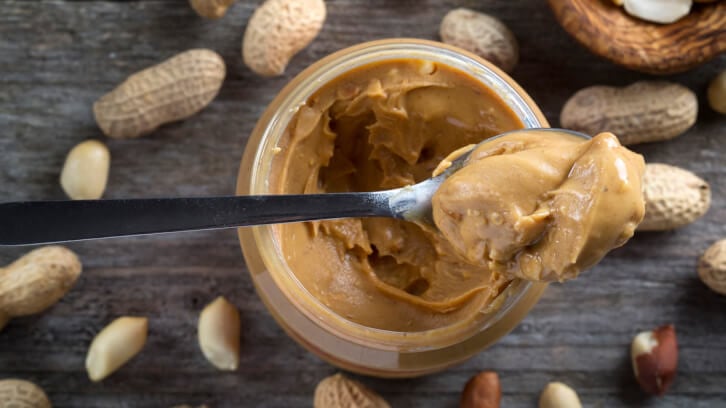Initiated in 2022, the Natasha Clinical Trial has seen early evidence of some its participants tolerating milk and peanuts to which they were previously severely allergic.
Children as young as two with food allergies are among the first partakers in the £2.5m trial, funded by a coalition of industry stakeholders and The Natasha Allergy Research Foundation.
So far 139 children aged between two and 23 years old with a food allergy to peanut or cow’s milk have started treatment.
The trial uses a process called oral immunotherapy (OIT) – wherein everyday foods are given to the participants (under strict medical supervision) in microdoses. The idea behind is that this will desensitise them to the ingredients they are allergic to; in this case, peanuts and cow’s milk.
Nine NHS hospitals are taking part in the trial and doctors say they are already seeing children on the trial who are able to consume and tolerate the very foods which previously would have triggered a severe allergic reaction.
When Thomas Farmer, aged 11, joined the trial in Southampton in March 2023, he could not tolerate even half a peanut. By January 2024, he was eating six a day.
“I wanted to do the study so I can help people with the same allergy as me and to be a positive role model to others who may be going through the same as me,” he said.
His mother Lauren added that it was scary at first, as they didn’t know what to expect, but the outcome has been encouraging.
“Knowing that Thomas can now tolerate six peanuts a day has taken away so much anxiety around food. It will also hopefully mean that he will be able to eat a wider variety of food as we won’t be so concerned about accidental exposure,” she said.
Giving further details around OIT as a treatment, co-chief investigator and reader in Paediatric Allergy & Clinical Immunology at Imperial College London, Dr Paul Turner, added: “While introducing potential food allergens into a baby’s diet in a safe way can prevent food allergies from developing in the first place, this doesn’t always work and cannot help those who already have food allergies. We hope this study will show that using everyday foods under medical supervision can be a treatment for food allergy.”
Food as medicine
If successful, the three-year trial, led by researchers at the University of Southampton, University Hospital Southampton, and Imperial College London, will provide the evidence for the treatment to be made available on the NHS.
Offering this kind of treatment would unload significant strain from the NHS, with food-related allergic reactions hospital admissions more than tripling in the last 20 years in the UK.
Speaking with Nadim Laperouse (co-founder of the Natasha Foundation and Natasha’s father) in an exclusive Food Manufacture podcast in 2022, he explained the benefits “food as medicine” could bring.
“If you have millions of people with a major health problem there’s no way that the NHS can actually treat them because the cost is too high,” Laperouse said at the time.
He explained that the trial will “demonstrate that food all along has been the medicine that has been overlooked” and that cheaper alternatives to expensive pharmaceuticals are available.
He added that if this proves to be a success and rolled out across the NHS, it would be “really good news for the food industry” too, with the potential to remove the current “big issues” around ‘may contain’ labels and cross contamination.
We must wait for the full picture
The results are only early-stage indicators, as Hasan Arshad, professor of Allergy and Clinical Immunology at the University of Southampton and chief investigator of the trial, explained – but they are promising nonetheless.
“We must wait until the trial is complete for the full picture but we are very pleased with the results we are seeing so far,” Arshad said.
Natasha’s mother and co-founder of the charity, Tanya Ednan-Laperouse, added that her daughter would have loved to have been a part of this research if she were alive today.
She continued: “We are so happy that some children with peanut and milk allergies are already seeing the benefits of using everyday foods under medical supervision to treat their allergic disease.





